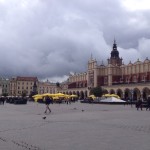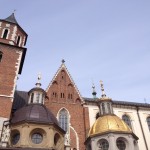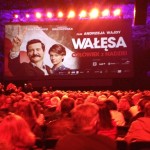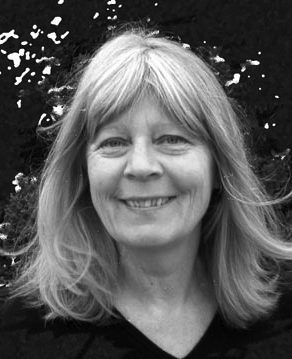Krakow: old, beautiful, relaxed. Lots of churches, cafés, parks, open spaces. We stayed at Helena Rubinstein’s birth place in the heart of the Jewish Quarter across from the Jewish cemetery and the only active synagogue that serves the remaining 10,000 Jews in Krakow. All three of these locations are tourist attractions, together with Schindler’s Factory. Helena’s family left Krakow in 1914. Not far from the Jewish Quarter is the castle, the old town square with cafés, an old market place now catering to tourists, and churches on every street corner. The best place for food is an outdoor market that serves roasted sausages, pig’s feet, ears, ribs, and whatever else a pig has to offer. Good luck for vegetariens — but there will always be borscht. Poland’s history has been a sad one, many divisions, take-overs by aggressive neighbors like Russia, Germany, Austria. Only recently did the Poles produce their own heroes to be proud of — Pope John Paul II, of course, former Bishop of Krakow, and Lech Walesa, charismatic political activist and leader of the trade union Solidarity, that helped turn around Polish history. Andrzej Wajda’s latest film, an homage to Walesa, premiered in a huge industrial compound outside of Krakow and I was lucky to be present. Wajda (85 years old and sick, according to his wife) couldn’t make it, nor Walesa or his family joined the three thousand plus crowd that watched the film and applauded reluctantly. That’s the Polish way, commented a friend, they don’t overflow with enthusiasm. Or did they – like me – not like the film?





